Common Misconceptions on Extending Your Tax Return
Review These Three Common Misconceptions Before Deciding to Extend Your Tax Return This Year
The transition from one year to the next often carries sentiments of a “fresh start” or a “new beginning.” Folks courageously and boldly implement well-intentioned resolutions for self-improvement and self-discovery. Simultaneously, there is an expectation to return to busy work/school schedules and participate in pre-planned activities. The thought of collecting, organizing, and interpreting prior year tax documents – which begin inundating physical and virtual mailboxes in late January and early February each year – can be a vastly overwhelming task. A common short-term “fix” is to request a six-month extension to file your tax return. Many individuals think that filing an extension is as easy as blindly clicking a button! This is not true; the process is not as straightforward or simple as it sounds. This article will discuss three of the most common misconceptions on extending your tax return, which may ultimately make you reconsider doing so.
Misconception #1: Filing an Extension Provides an Additional Six Months to File and Pay My Taxes
Beware! Filing an extension only provides an extension of time to FILE, not an extension of time to PAY.
Simply by filing Form 4868 (Application for Automatic Extension of Time to File U.S. Individual Income Tax Return) with the IRS by April 18, 2023, you will successfully avoid the Failure-to-File Penalty. This is true regardless of whether you receive a refund or have a balance due upon filing your tax return later in the year. The Failure-to-File Penalty is 5% of the unpaid taxes for each month or part of a month that a tax return is late. The penalty will not exceed 25% of your unpaid taxes.
HOWEVER, by filing Form 4868 with the IRS by April 18, 2023, you will NOT necessarily avoid the Failure-to-Pay Penalty. If you have a balance due upon filing later in the year, you WILL be subject to this penalty. The Failure-to-Pay Penalty is 0.5% of the unpaid taxes for each month or part of a month that the tax remains unpaid. The penalty will not exceed 25% of your unpaid taxes. Interest charges will be assessed on the tax and penalties due as well – thus increasing the total cost you will need to pay.
Let’s examine a quick example. Suppose an individual taxpayer asks their tax accountant to file a 2022 extension on their behalf with the IRS (without payment) on April 1, 2023. The taxpayer then collects their tax documents over the summer and their tax accountant prepares and files the 2022 tax return on October 1, 2023. The taxpayer owes $5,000 in tax at that time. In this scenario, by not paying in this $5,000 by April 18, 2023, their total balance due, excluding interest, is $5,150 ($5,000 in tax plus a $150 failure-to-pay penalty). The $150 failure-to-pay penalty is calculated as follows: $5,000 x 0.5% x 6 months = $150. This example does not consider interest charges. As mentioned above, the IRS charges interest on unpaid tax and penalties. The interest rate is determined quarterly, and it is the federal short-term rate plus 3%. Interest compounds daily. To make matters worse, penalties and interest will likely be assessed by your state taxing authority as well. This example clearly demonstrates that filing an extension without payment when tax is due can be a costly mistake!
Misconception #2: Filing an Extension Avoids Having to Gather My Tax Documents Prior to April 15th
False! As described above, it is necessary to decipher whether you are in a “refund” or “balance due” position prior to April 15th. If you are in a “balance due” position, your tax due MUST be paid in with your extension by April 18, 2023, to avoid the aforementioned failure-to-pay penalty. To make this determination, it’s necessary to gather and tally (at a minimum) all sources of income for the year as well as any prepayments made via withholding or estimated tax payments. It’s also helpful to gather and tally deductions, but those can be approximated if need be. This information should be given to your tax accountant well in advance of the April 15th deadline. That way, your tax accountant can recommend prudent federal and state extension payment amounts to avoid penalties from being assessed. The process requires a thorough and comprehensive analysis.
Misconception #3: Filing an Extension Increases My Risk of an Audit
Incorrect! There is absolutely no evidence that filing an extension increases the risk of an audit. The IRS uses several different methods in selecting returns to audit, but the scrutinization of extended returns is not one of them. In an effort to be as transparent as possible, the IRS has even published the specific reasons that tax returns are typically chosen for audit. Those include computer screening, related examinations, or randomicity. Computer screening, which is the most common method, uses a statistical formula where the IRS compares your tax return against “norms” for other similarly situated taxpayers. The related examination method uses pre-identified issues with other associated taxpayers, such as business partners or investors, whose returns were previously selected for audit. The last method – at random – is as self-explanatory as it sounds. Roughly 5,000 returns out of 153 million filed returns were selected for a random audit in 2017 and roughly 8,000 out of 154 million filed returns were selected for a random audit in 2019. But again, filing an extension does not increase (or decrease) the likelihood of this occurring!
Filing an extension for your tax return can certainly be tempting. Life gets busy and “time” is the ultimate commodity. But you should only exercise this option if you’re expecting a tax refund or if you’re planning to make a carefully calculated extension payment to cover 100% of your tax due. Before ever deciding to extend your tax return, it’s important to discuss the consequences with your financial advisor and/or tax accountant. You can work together to determine the appropriability based on your personal tax situation.
This year’s original tax filing deadline is Tuesday, April 18, 2023. The extended tax filing deadline is Monday, October 16, 2023.
Should you have additional questions, please contact Jeff Audi via e-mail at [email protected].









